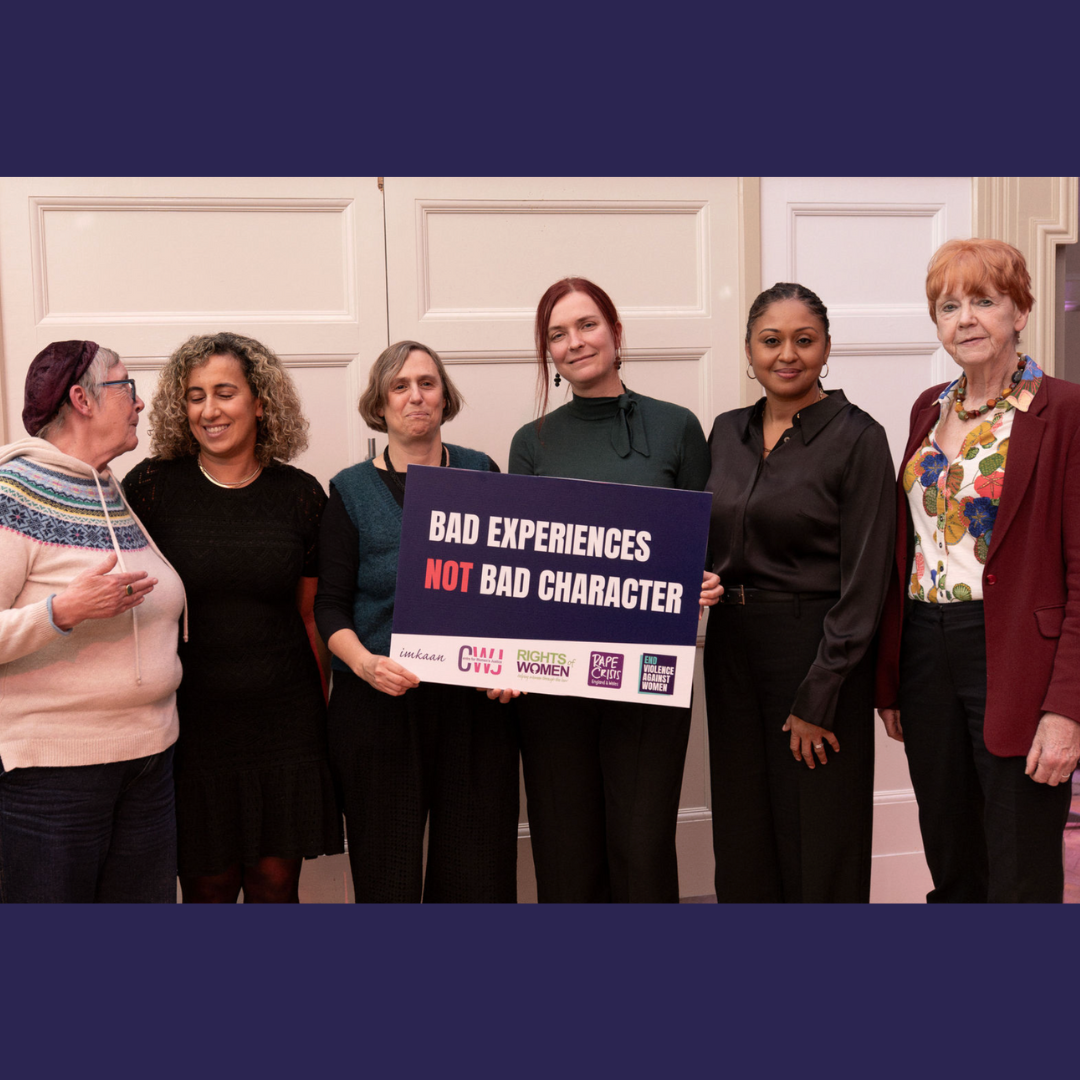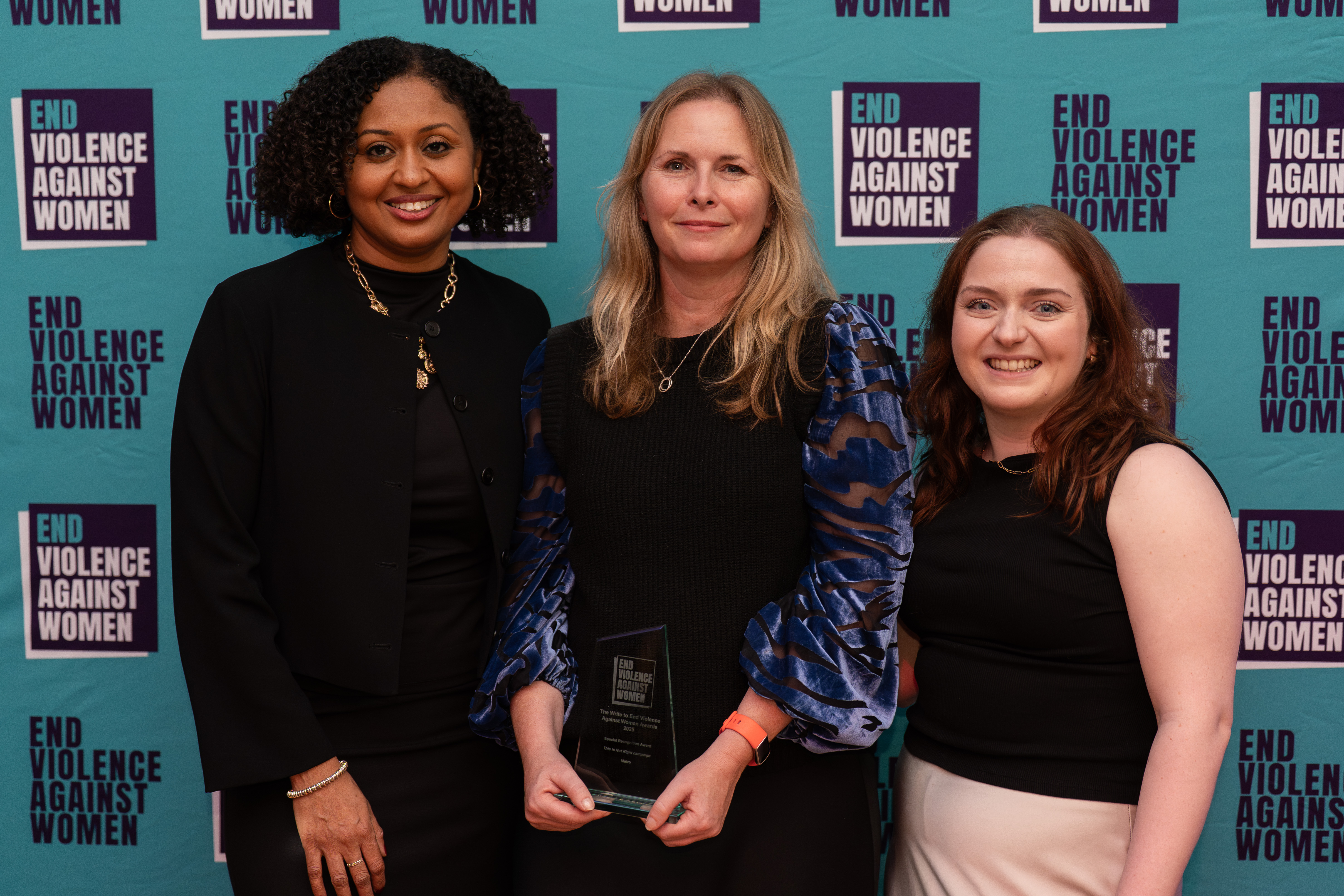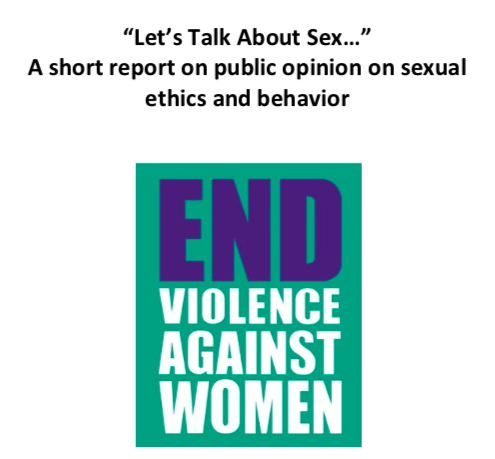 03 Dec
03 Dec
A new YouGov survey and report published today (23 August) finds that
- Many people think that men need and want sex more than women
- People also think straight men tend to initiate sex and orgasm more than women
- People think straight women experience “orgasm gap”, commonly refuse sex, and “go along with sex to keep their partner happy”
A leading coalition of UK women’s groups today publishes a new YouGov survey and a short report on GB adults’ views on sexual practices, which reveals widely held views that men need and want sex more than women do, whereas women are more likely to refuse sex or to go along with it for their partner’s sake (1).
The End Violence Against Women Coalition is calling for a big national conversation on what these findings indicate, and for professionals in relevant fields and media makers and influencers to take up the issue with urgency, because of its major implications for equality between men and women more broadly.
The women’s coalition commissioned the YouGov survey of nearly 4,000 GB adults and three online focus groups with men and women, in order to examine what people believe about gendered differences in heterosexual sex and relationships. It follows some already published public attitudes research on views about rape and consent (2).
The survey finds that:
Who needs and wants sex?
-
-
- A third of people (32%) believe that men need sex more than women, whereas 54% believe men and women need sex about the same amount (1% believe women need sex more)
- 42% of people believe men want sex more than women do, whereas 45% believe men and women want sex about the same amount (2% believe women want sex more)
Who initiates, orgasms during and decides when sex is finished between heterosexual couples?
-
- People mostly think (45%) that heterosexual sex is slightly more likely to be initiated by the man closely followed by either partner (42%). Just 3% think it’s initiated by the woman
- More than half of people (53%) think that men are more likely to orgasm in sex, compared to around a third (35%) thinking both partners are likely to orgasm
- A similar proportion think either the man (36%) or both partners (38%) will decide when sex is finished, and 11% thinking it will be the woman
Who might refuse sex, or go along with sex ‘to keep their partner happy’ between heterosexual partners?
-
- The majority of people (56%) think that the woman is more likely to refuse sex; 25% believe that both partners are as likely to refuse; while only 1% of people think men are more likely to refuse sex
- The majority of people (57%) think women are more likely to ‘go along with sex to keep their partner happy’; whereas almost a quarter (23%) think that both partners are as likely to do this; and only 2% consider men more likely to do so
- More women (63%) than men (50%) think that women are more likely to go along with sex to keep their partners happy.
Is sex likely to be enjoyable? Are there generational differences?
- Almost three quarters (73%) of people believe both partners are as likely to enjoy themselves in heterosexual sex. But this figure reduces amongst 18-24 year olds to 58%.
-
Sarah Green, Director of the End Violence Against Women Coalition said:
“Although it’s good to find that three quarters of adults believe men and women are both likely to enjoy sex, what we clearly also have are persistent, widely held views about who sex is primarily ‘for’, who “needs” it and whose pleasure matters. This is a cornerstone of equality as much as equal pay and shared parenting, but “the orgasm gap” is perhaps not as widely discussed as some other key equality issues.
“EVAW considers the continued acceptance of these ideas about sex to be deeply sexist. Sexual inequality matters enormously, in and of itself, because women should be able to expect and enjoy sexual relationships which are based on mutual pleasure, sharing and equality. This should not need contesting or sound radical.
“But it also matters because – if we have a society thinking it’s fair enough for a man to pester a woman to have sex because he ‘needs’ it, that women are less likely to enjoy sex, that women’s orgasms are more difficult to achieve, that it’s routine for women to go along with sex for someone else’s sake, while still putting all the responsibility on women for preventing and ‘gatekeeping’ sex – rather than on the man for seeking consent and also working towards enjoyable experiences for both – then at best our aspirations are poor, and at worst we create a set of readymade excuses for sexual assault.”
The EVAW Coalition is making the full data tables available on its website and is encouraging people to download and read and share them, and to initiate and join discussions about sexism and sex.
The new short report by the EVAW Coalition, ‘Let’s Talk About Sex…’ is also available on the organisation’s website. It summarises the data and focus group discussions and analyses what the findings might mean from a point of view of women’s equality and preventing sexual violence. It examines how sexist attitudes to sex are reproduced, the “orgasm gap”, and makes recommendations for accelerating conversations about sexism and sex in order to achieve change.
The report’s recommendations: urge professionals in relevant fields including criminal justice, health, the media, arts and education to engage with the findings and bring them to colleagues; calls on media workers and those in the arts to tell more stories and platform those we rarely hear from in conversations about sexual practice; appeals for new compulsory Relationships and Sex Education to include discussion of sexual pleasure and not just reproduction and menstruation; calls for challenge to the porn industry’s particular perpetuation of deeply sexist tropes and routine and harmful deployment of narratives for the male gaze based on women as ‘gatekeepers’.
Dr Fiona Vera Gray, Research Fellow at Durham Law School, expert on sexual harassment and pornography, said:
“This report shows how far we’ve got to go in changing outdated ideas about women as sexual gatekeepers. The belief that heterosexual sex is something women refuse or go along with rather than initiate, feeds damaging rape myths that hold women responsible for stopping rape, and blame women who show sexual agency.
“The finding that young people seem to hold some of the most regressive attitudes may speak volumes about how government delays to sex education have left a whole generation scrabbling to understand sex through the sexist representations we find in most pornography, where sex is something done to women by and for men.
“We need to get over our squeamishness and start talking about sex as something that is mutual, pleasurable, and fun.”
Marai Larasi, Advocate, Activist, Consultant and Educator, said:
“This research highlights the need for deep societal shifts around our relationship to sex. Sex is ‘everywhere’ and yet it is ‘nowhere’. We live in an era where sexual imagery and references are deployed in everything from advertising to music. Yet we have failed to really transform how sex is understood and engaged with/in. We need to address this if we are to disrupt the current dynamic and to create a society where equality actually matters, including in that most basic of human interactions i.e. sex.”
Sarah Green, Director of the End Violence Against Women Coalition concluded:
“Although survey respondents are not necessarily talking about their own lives, but rather what they believe other people think and do, women are more than aware of these sexist ideas about sexual equality. After sexual violence, these deeply sexist ideas affect women’s ability to seek therapeutic help and to seek justice, and even whether to tell their own families, because they know how they will be judged – you should have stopped it, of course he was going to do that, and so on.
“Sexual double standards around rape are exactly why we have protections including anonymity for those who report, and some controls over the use of evidence about a victim’s sexual history in court. Right now, the threat of having mobile phones removed and examined when reporting a rape may deter women who know how they will be judged – as having failed to be a good enough ‘gatekeeper’.”
The full report is here:EVAW Short Report on Sexual Ethics August 2019
The YouGov survey tables are here
Notes:
- YouGov surveyed 3922 GB adults aged 18+. Fieldwork carried out on 19th September 2018. The survey was carried out online. Figures have been weighted and are representative of GB population. YouGov also conducted three online focus in 2018; two with women (split by age) and one with men (all ages). The groups were 90 minutes in duration and with 6-9 respondents per group
- EVAW survey of attitudes of rape and sexual violence published 6th December 2018 https://www.endviolenceagainstwomen.org.uk/major-new-survey-many-still-unclear-what-rape-is/
- British Medical Journal ‘Prevalence and correlates of ‘sexual competence’ at first heterosexual intercourse among young people in Britain’, finding that almost half of young people are not ready for and have poor first sexual experiences, published January 2019 https://www.bmj.com/company/newsroom/readiness-for-first-sex-is-about-more-than-age-for-many-young-britons/
Recommended ARTICLES
 03 Dec
03 Dec
 02 Dec
02 Dec
 28 Nov
28 Nov

